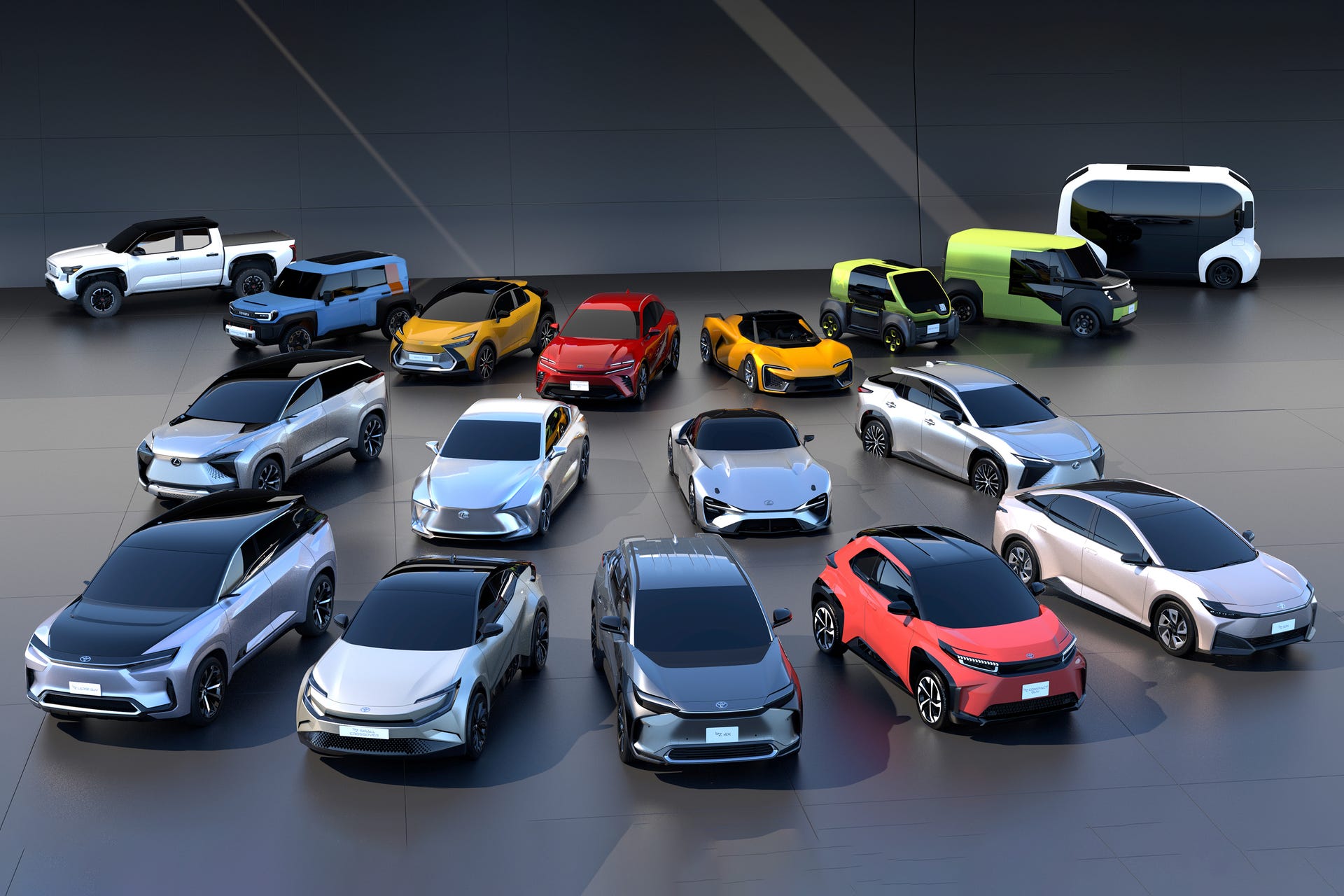Falling Demand: Canadian Interest In Electric Vehicles Continues To Drop

Table of Contents
Rising Costs and Inflationary Pressures
Increased prices of EVs and overall inflation are significantly impacting purchasing decisions. The rising cost of living is making it harder for Canadians to afford big-ticket items like cars, especially considering the premium traditionally associated with electric vehicles.
- Increased battery costs leading to higher vehicle prices: The cost of lithium-ion batteries, a crucial component of EVs, has skyrocketed in recent years, directly translating to higher vehicle prices for consumers. This increase is often not fully offset by government incentives.
- Reduced consumer disposable income due to inflation: High inflation rates are eroding consumer purchasing power. With rising costs for groceries, housing, and other essentials, many Canadians are delaying or forgoing major purchases like new vehicles.
- Comparison of EV price increases against the price increases of gasoline-powered vehicles: While gasoline vehicle prices have also increased, the percentage increase for EVs has often been steeper, making them less competitive in the current economic climate.
- Government incentives and their effectiveness (or lack thereof) in offsetting price increases: Although the Canadian government offers incentives like rebates and tax credits for EV purchases, these often fail to fully compensate for the higher initial cost of EVs, particularly for higher-end models. The effectiveness of these incentives needs further review in the context of current inflation.
Range Anxiety and Charging Infrastructure Gaps
Concerns around limited driving range and insufficient charging infrastructure across Canada remain significant barriers to EV adoption. Many Canadians, especially those living outside major urban centers, worry about the practicality of EVs for their daily commutes and longer trips.
- Statistics on EV range and typical Canadian driving distances: The average range of EVs, even the newer models, can be insufficient for some long-distance drives common in Canada's vast geography.
- Lack of widespread and reliable fast-charging stations, especially in rural areas: The density of fast-charging stations is significantly lower in Canada compared to many European countries and the United States, creating "range anxiety" for potential EV buyers. This is particularly problematic in less populated areas.
- Comparison of charging infrastructure in Canada with other countries: Canada lags behind many other developed nations in terms of the availability and accessibility of EV charging infrastructure. A significant expansion is needed to boost consumer confidence.
- Impact of cold weather on EV battery performance and range: Cold Canadian winters significantly reduce EV battery performance and range, further exacerbating range anxiety and impacting the perceived practicality of EVs.
Competition from Used Gasoline Vehicles
The availability and affordability of used gasoline vehicles are strongly influencing consumer choices. The increased supply of used cars has driven down their prices, making them a more attractive option for budget-conscious buyers.
- Increased supply of used gasoline cars driving down prices: The used car market is currently flooded with relatively inexpensive gasoline-powered vehicles, providing strong competition to new EVs.
- Consumer preference for cheaper, readily available used cars over new EVs: Many Canadians are opting for the lower upfront cost and readily available used gasoline cars, particularly in the face of economic uncertainty.
- Impact of rising interest rates on financing new vehicles (both EV and gasoline): Rising interest rates make financing any new vehicle more expensive, further impacting the affordability of EVs and making used cars a more attractive alternative.
Shifting Consumer Priorities
Economic uncertainty and evolving consumer needs are also impacting EV interest. While environmental concerns remain important for many, affordability and immediate economic needs often take precedence.
- Economic uncertainty and its effect on major purchases: The current economic climate is causing many Canadians to postpone large purchases like new vehicles, regardless of fuel type.
- Changes in consumer priorities (e.g., focus on affordability over environmental concerns): The focus has shifted from long-term environmental considerations to immediate financial concerns for many consumers.
- The role of media coverage in shaping public perception of EVs: Negative media coverage focusing on cost, range, and infrastructure limitations can impact public perception and influence purchasing decisions.
- Potential skepticism about long-term EV technology and maintenance costs: Some consumers remain skeptical about the long-term reliability and maintenance costs associated with EVs, particularly battery replacements.
Conclusion
The decline in Canadian interest in electric vehicles is a multifaceted issue resulting from rising costs, range anxiety, competition from used gasoline cars, and shifting consumer priorities. Addressing these challenges is crucial for revitalizing the Canadian EV market. Understanding the reasons behind falling demand for electric vehicles in Canada is vital for policymakers and manufacturers. To reignite the growth of the Canadian EV market, addressing affordability, expanding charging infrastructure, and managing consumer expectations are essential steps. Further research and proactive strategies are needed to boost Canadian electric vehicle sales and ensure a sustainable future for the automotive industry. The future of electric vehicle sales Canada hinges on overcoming these challenges.

Featured Posts
-
 Helmeyers Blaugrana Journey A Testament To Commitment
Apr 27, 2025
Helmeyers Blaugrana Journey A Testament To Commitment
Apr 27, 2025 -
 Hhs Under Fire Anti Vaccine Advocate Reviews Debunked Autism Vaccine Connection
Apr 27, 2025
Hhs Under Fire Anti Vaccine Advocate Reviews Debunked Autism Vaccine Connection
Apr 27, 2025 -
 Green Bay Packers A Look At Their 2025 International Game Prospects
Apr 27, 2025
Green Bay Packers A Look At Their 2025 International Game Prospects
Apr 27, 2025 -
 Dax Performance The Impact Of German Politics And Business Sentiment
Apr 27, 2025
Dax Performance The Impact Of German Politics And Business Sentiment
Apr 27, 2025 -
 Your Guide To The Grand National 2025 Runners At Aintree
Apr 27, 2025
Your Guide To The Grand National 2025 Runners At Aintree
Apr 27, 2025
